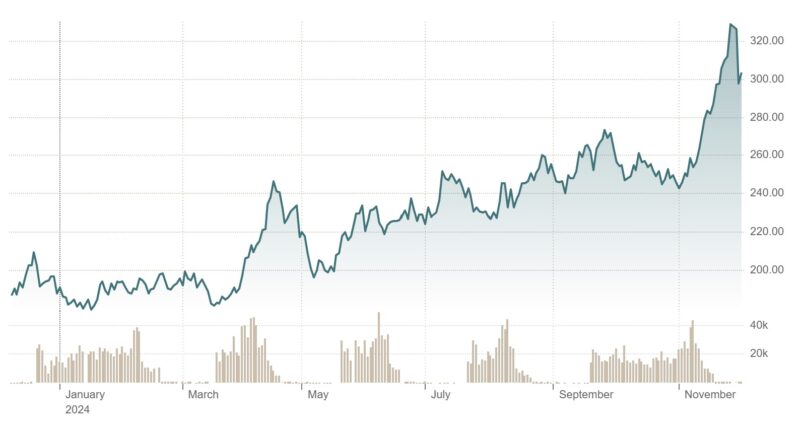In Minas Gerais state, Brazil’s largest coffee growing state, farmers and exporters often rejoice at rising coffee prices. But not this year.
After many disappointing harvest seasons, the sudden price increase has caused many large producers to fall into financial difficulties due to not having enough cash to ensure the margin for futures contracts to insure coffee prices on the market. New York Arabica floor.
Atlântica Exportação e Importação SA, which accounts for about 8% of Brazil’s Arabica coffee sales, last week asked a local court for more time to negotiate with creditors to avoid bankruptcy. Similarly, Cafebras Comércio de Cafés do Brasil SA is also asking for an extension of 60 days. According to industry experts, these two companies may not be the last.
“The market is panicking over rumors that other trading firms may also face serious problems” said Mr. Marcelo Moreira, coffee expert at Archer Consulting.


Arabica coffee futures prices have increased about 70% from January to the end of November, reaching their highest level in nearly 50 years. Although prices have dropped slightly since then, it has not been enough to alleviate difficulties. When prices increase, brokers require coffee producers and exporters to add margin to hedge against potential risks to their sold contracts. Some short sellers have to accept losses to liquidate, these buy orders add more motivation for prices to continue to rise. Mr. Moreira estimates about $7 billion was used to meet margin requirements in November.
“High margin requirements are a major financial strain, and for trading firms that contract coffee or other commodities on commodity derivatives exchanges, this is a real double whammy.” Ms. Judy Ganes, president of J. Ganes Consulting, commented.
In addition to financial pressure, the coffee market is also affected by high transportation costs and shortcomings. Coffee sellers must spend an additional 7 million reais ($1.2 million) this year on items such as additional storage fees and port fees, according to the Brazilian Coffee Exporters Association (Cecafé). Transportation costs between coffee producing countries in Asia and consumer markets in Europe have also increased due to the Red Sea crisis. Additionally, concerns are growing that the upcoming Arabica coffee crop will be smaller due to severe drought.
Thinh whistle (according to Bloomberg)
